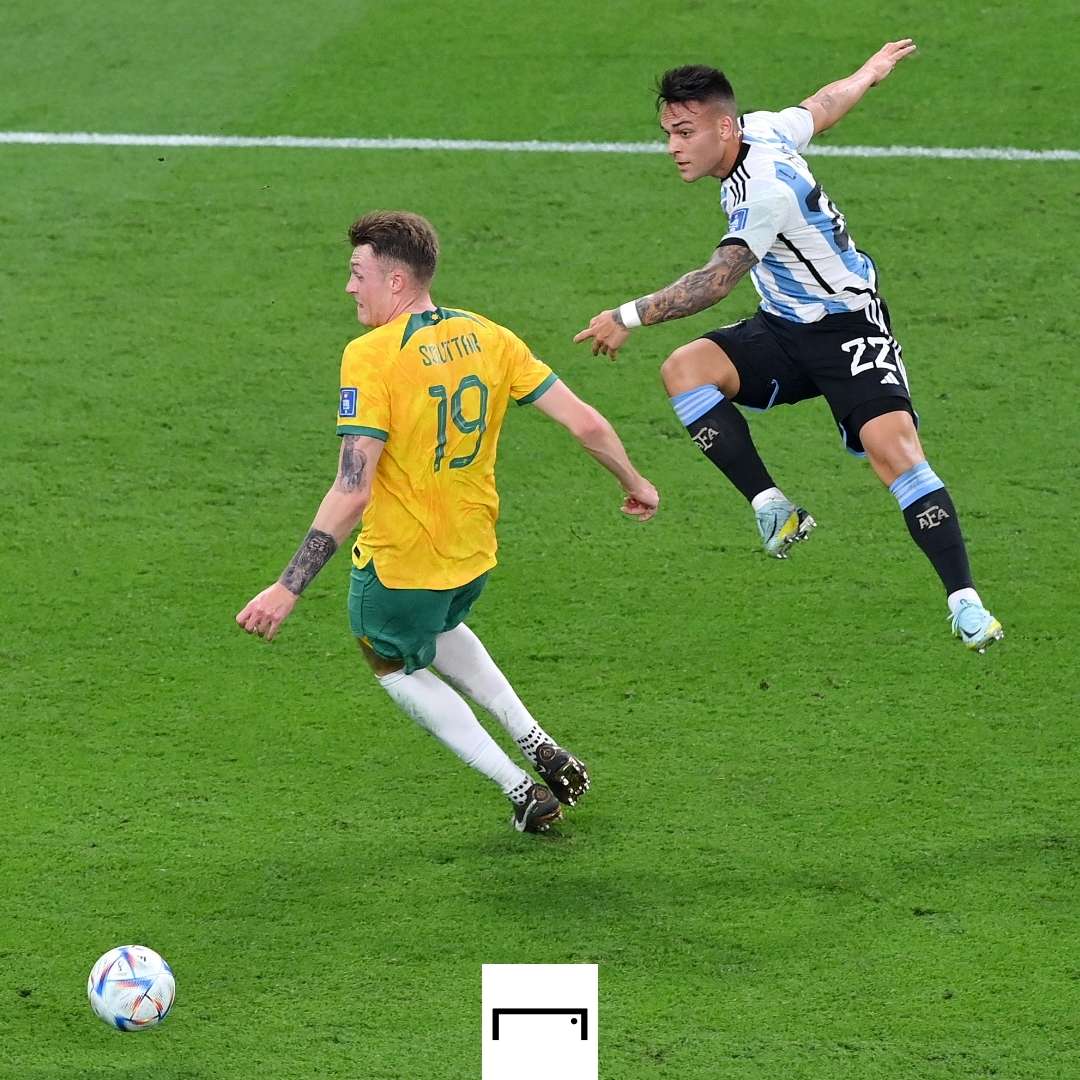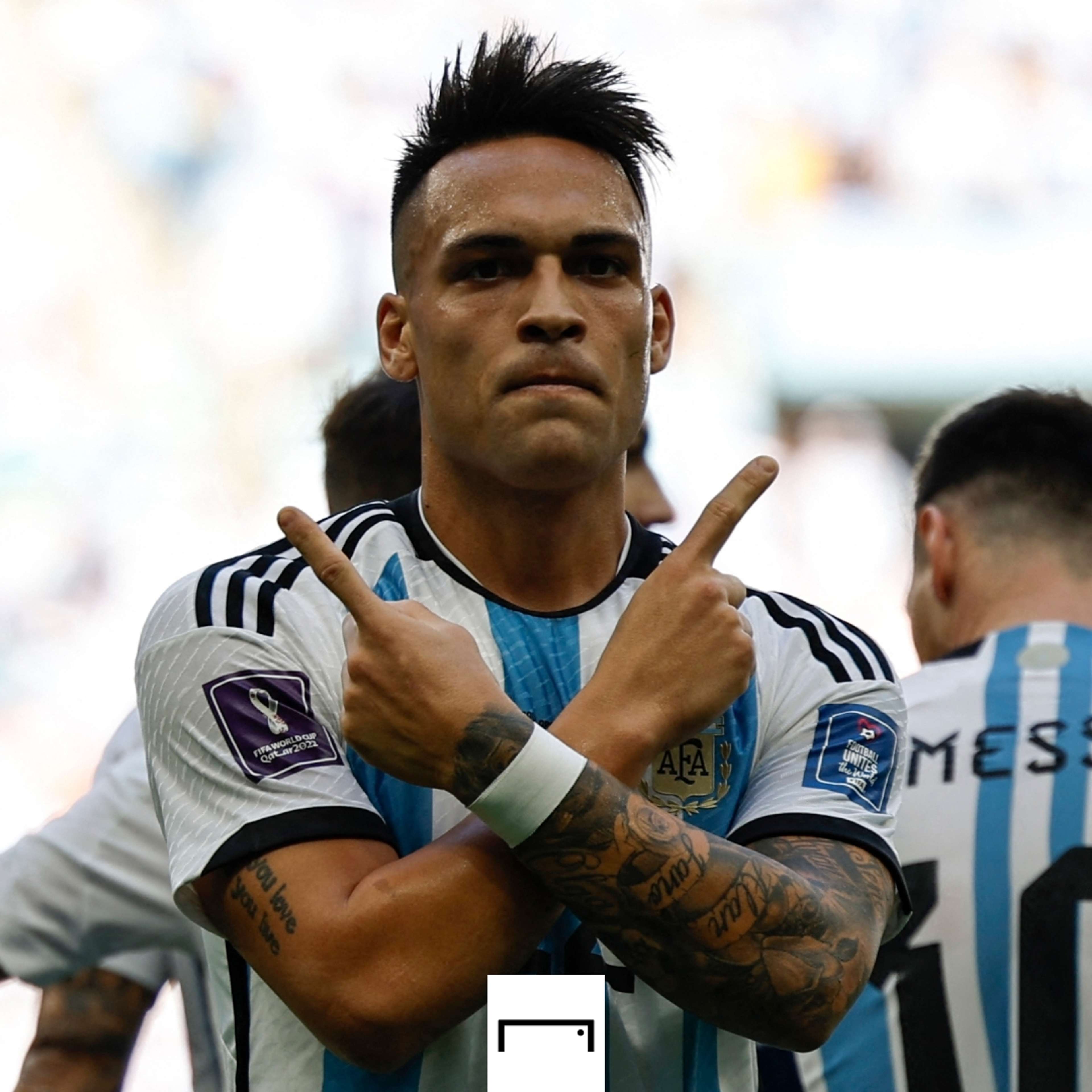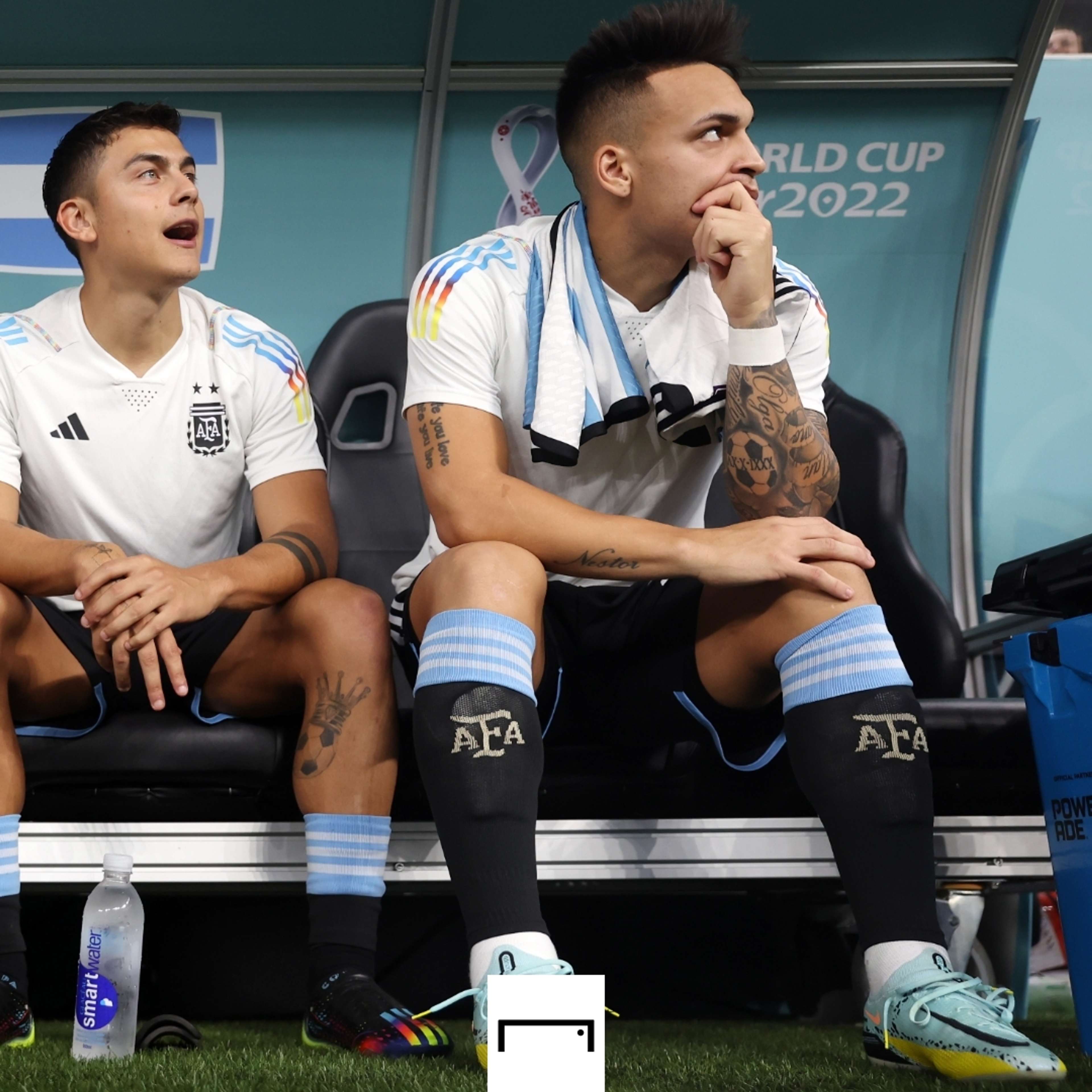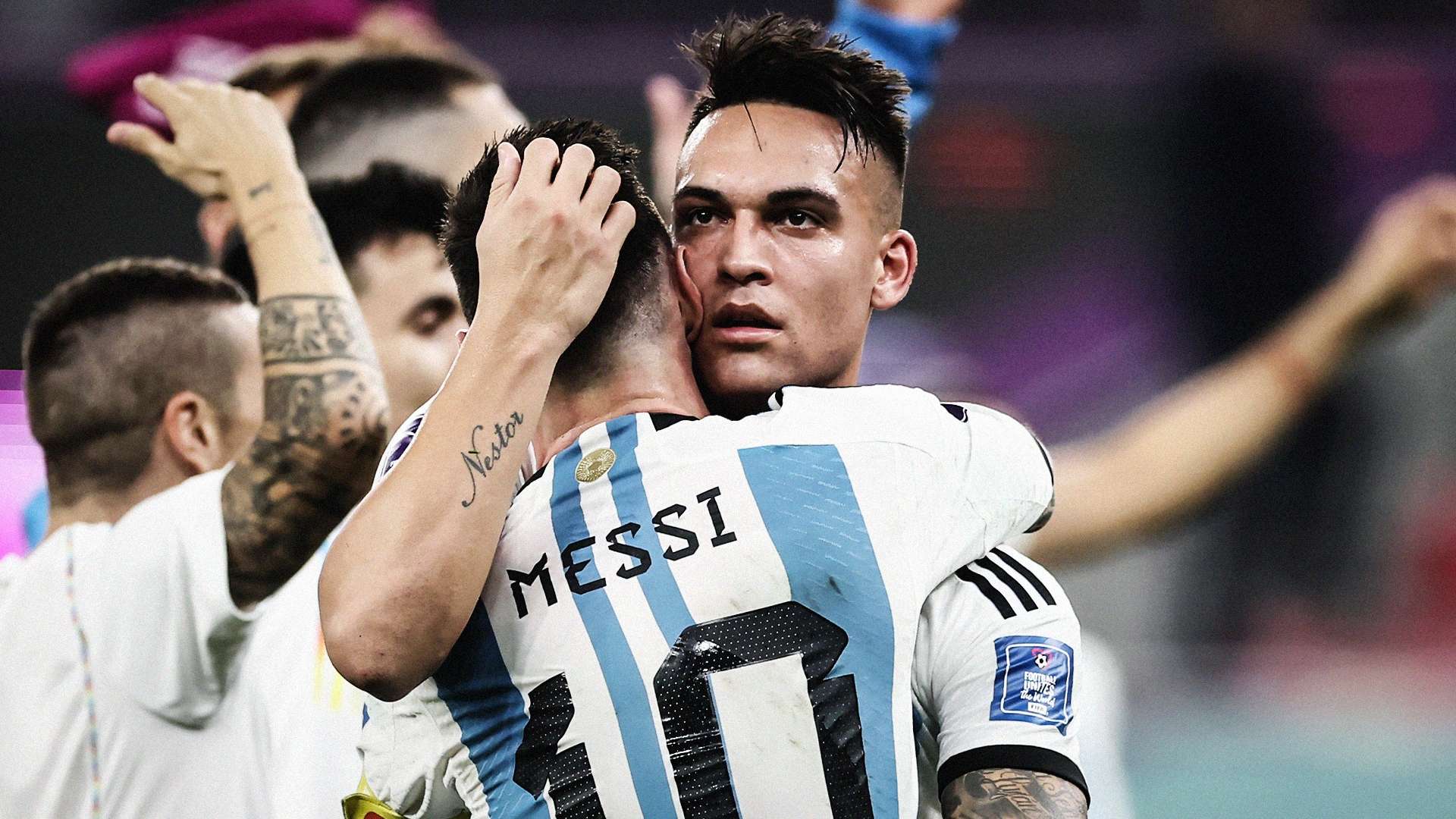The comparisons between Lautaro Martinez and Gonzalo Higuain began long before the final whistle had even blown at the Ahmad bin Ali Stadium. History was going to repeat itself, Argentina fans feared, with Lionel Messi's hopes of winning the World Cup once again dashed by a misfiring forward.
This wasn't a final, of course, merely a last-16 clash with Australia. And Argentina had already done just enough – thanks primarily to yet another Messi masterclass – to progress to the quarter-finals.
However, this should have been a far more comfortable win. And it would have been, had it not been for Lautaro's woeful finishing.
Despite only coming on in the 70th minute, the Inter striker finished the game with a higher expected goals tally (0.58) than any other player who had set foot on the field. And yet he didn't manage one, missing a a trio of clear-cut chances in injury-time alone.
In truth, it had actually been tough to watch, Lautaro left looking bitterly frustrated after squandering one chance after another to kill the game.
Next Match
 Getty
GettyUnsurprisingly, his captain rushed to his defence. "Lautaro is a very important player for us," Messi told TyC Sports. "He is a striker who lives by scoring goals.
"Now, it is fundamental that he is well in view of the quarter-final and what still has to happen in this World Cup."
Messi's not wrong, either. If Argentina are to have any chance of winning this World Cup, it is imperative that they figure out a way to unlock Lautaro.
Thus far, they've been lucky that Julian Alvarez has caught fire, becoming the first Argentine to score in his first two starts on this stage since Hernan Crespo at Germany 2006.
However, even if Alvarez maintains his fine form, it's already become clear that Argentina will need in-form options off the bench. Just look at the vast array of attacking options that England, Brazil and even an injury-hit France have at their disposal.
At the end of an intense tournament played within a congested season like no other, substitutes will have a massive role to play between now and the final. Therefore, Lautaro does indeed remain "very important" for Argentina. After all, the 25-year-old has been one of the stars of the Lionel Scaloni era.
 Getty
GettyHe actually made his international debut under Jorge Sampaoli, but was omitted from the 2018 World Cup squad because the then-coach felt Lautaro lacked "the extra gear" required at international level.
Scaloni, who served as Sampaoli's assistant in Russia, never had any doubts about Lautaro, though, making him the spearhead of his new-look attack. Lautaro has scored 21 times on Scaloni's watch – only Messi has more.
The two have thrived playing together. Indeed, Messi even wanted Lautaro at Barcelona, believing him to be the ideal replacement for his good friend Luis Suarez.
"He is spectacular, he has incredible talent, you could see he was going to be a great player and now he has exploded and is showing it," Messi told Mundo Deportivo in February 2020. "He is very strong, he is brilliant in one-on-one situations, he scores goals, he takes on anyone in the area. He holds the ball up, he pivots, he goes looking for the ball. He has so much talent, he is a complete player."
However, he's also a confidence player. Many are, of course, particularly strikers. Some regularly go from goal gluts to droughts, and back again. Martinez, though, is as streaky as they come.
He is one of only five Argentines to score in four consecutive Champions League matches – and yet he also went 10 games without a goal in the same competition before netting a stunner against Liverpool last season.
It's often a feast or a famine with Lautaro, which is simultaneously a cause for concern and a reason for optimism right now. This really could go one or two ways. He could as easily fall further into the mire as he could turn his tournament around with one goal.
 Getty
GettyHis agent has claimed that he's now 100 percent physically fit after allegedly carrying an ankle injury into the tournament. What's more important, though, as Messi pointed out, is that Lautaro remains mentally strong. Argentina needed him level-headed, not too desperate to silence the critics.
As Higuain himself recently told GOAL, for any striker in an increasingly "toxic" world of social media, the most important thing is "to try to find a balance. Over time, I tried to learn that praise doesn’t get me too high and criticism doesn’t get me too low." And Lautaro has worked on the mental side of his game.
He has long played with a fearsome ferocity, earning himself the nickname 'The Bull', but it also made him something of a liability. At the 2017 Under-20 World Cup, for example, he was sent off just 18 minutes after coming on in his country's opening group game, against England.
He continued with the same level of intensity in Europe, but he eventually came to realise that his competitive nature had its disadvantages. He was picking up far too many yellow cards for remonstrating with referees.
He credits the birth of his daughter with helping him grow up, but he also benefited from speaking to a psychologist. “Check the stats and you can see I’ve improved," he said of his disciplinary record during the summer. "A new season is on the horizon and so is the 2022 World Cup."
It's clearly not gone well for Lautaro so far. But it's not over yet. There is still time for him to change the narrative.
Higuain told GOAL, "Things change quickly in football. Very quickly. One day 60,000 people are screaming your name. Fifteen days later, they might insult you." But as he also pointed out, "The opposite can also happen."
Lautaro needs to keep believing, then. Whether he starts against Netherlands on Friday, or comes off the bench, he's going to get another shot at this. He's going to get another chance. Messi will almost certainly see to that.


